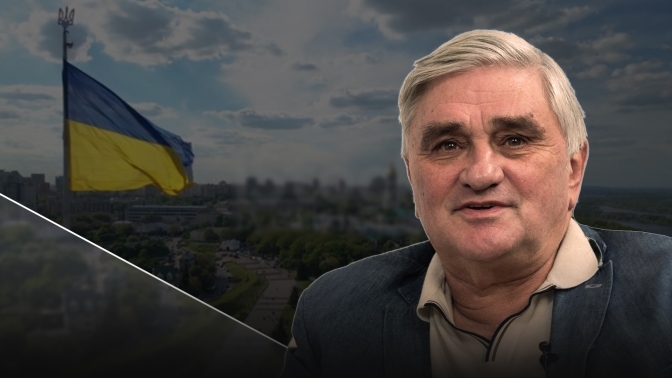
[For urgent updates please follow Ukrainian Freedom News on Telegram]
- Is it easier, being a psychotherapist, to perceive all this horror of war, which we see and feel?
- The difficulty of this time is that we do not have any «recipes» to answer, at least sometimes, the simplest questions that concern the present day. This has its own difficulty and its own specific challenge. It seems that to appreciate what is happening to us and how we think about the present day, without having any standard patterns, one has to ponder. Ponder not just with some acquired knowledge, but by looking very deeply inside yourself.
The information that’s now being heaped upon us may sometimes be a much more important component of the current war than the physical dimension. The fact that the physical part is catastrophic is clear: it has existed since ancient times, people killed other people with sometimes a very banal purpose, sometimes with a sacred one, etc. I believe we are on a «crusade» now.
We feel that this information component is very important. Someone looks and selects the information that he likes or that is subjectively reassuring. Let’s put it aside right away: what I like is a subjective approach. And I like it because a person uses a certain vocabulary, a set of terms that suits him. We put it aside, because it can give little.
I have many discussions with colleagues. We call these large mutual support groups. Specialists gather in large groups, discuss problems, support each other. I have two most interesting groups – with English-speaking and German-speaking colleagues. Both Ukrainian and foreign specialists participate in them.
The first groups were an exchange of ideas, and during the fourth-sixth meetings, we were asked: «What is it really like? You tell us such things, it’s hard to believe. We don’t understand.» Or: «We don’t quite understand how you are going through all this, because we don’t have such experience.»
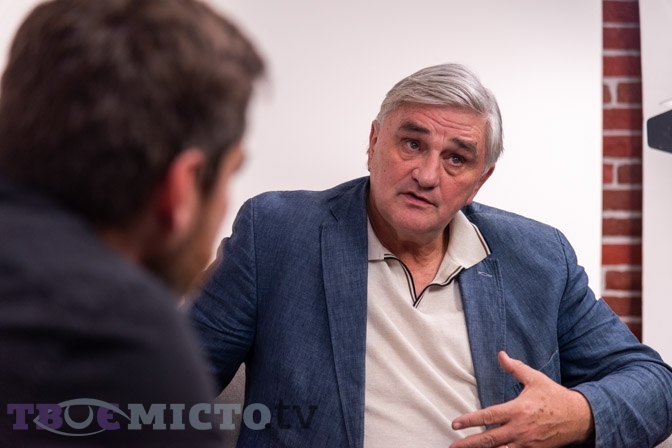
From about mid-May, we realized that the trauma techniques we were to be taught by our colleagues, actually weren’t working. And they agree with it. Recently, I told them: «You teach us how to process acute trauma, post-traumatic stress disorder, how to work in crisis situations, but these Western techniques do not work precisely because the cultural features of experiencing trauma in Ukraine are different from yours. Your catastrophic injury could be related to corruption, for Ukrainians, it will not be an injury.» It’s just that the historical conditions have developed, not because we are bad people, but they are good. And it will be difficult for us to switch to another mode.
Western journalists are also trained in their culture, so they do not understand many of our nuances. Although this is a well-worn truth, they do not fully understand what the «Russian soul» is.
If we listen to the BBC, we listen to what the BBC journalists have written, and I am not sure that they have a good understanding of what is happening here. Can I rely on this as truly objective information? Maybe, not always. Sometimes, you listen to their report and think: how cool they are doing everything, clearly, based on facts. Suddenly, «bang» – and they said something stupid.
So, what information can I really rely on? When we have such a catastrophic information war, I don’t have any ready-made «recipes». There remains only a pragmatic option – after collecting information, try to meet with a circle of people who have as different an approach to its selection as possible, and create a certain collective matrix of what is happening. It will not necessarily be the most accurate, but at least, it will reflect the situation. And tomorrow, it will change.
The entire information war consists in maximally subjecting reality to certain destruction or changing it so that it’s unrecognizable. That’s why, unfortunately, we can’t rely on reality, and our thinking is used to doing it.
Psychotherapy contains an important element of a specific understanding of what is happening, a way of thinking – in a sense, trained self-addressing in the depths of the soul. We call it specific reflection – thinking about what I am capable of knowing and feeling. Now, perhaps, it’s necessary sometimes to feel more than to know, because reality is very shaky and the goal of the information war is the destruction of reality.
The only method that remains is to constantly think about what I feel and what I can understand. That is, constant activation of thinking. It’s very difficult, we must make intermediate «stops» where we can gather experience, record data, knowledge, generalize and move on. And we cannot do that, because every day, the situation changes. Not only us but also the world is in a very difficult situation.
The difficulty lies in the fact that the «frames of reference» are different: both in Ukraine and in China, both in the West and in Russia.
- Frames of reference of what?
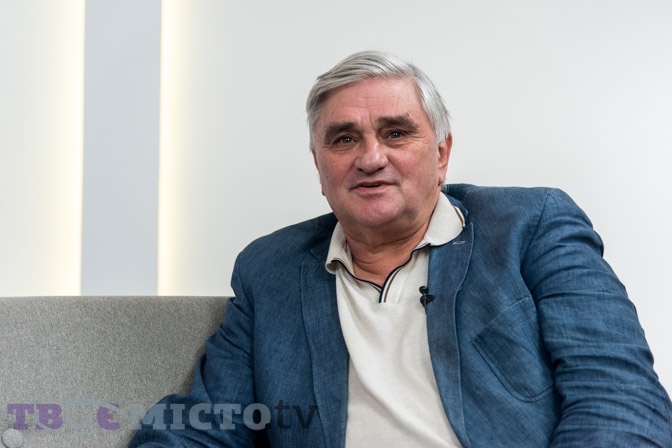
- Of certain basic concepts on which we rely. We psychotherapists call it in a slightly different way.
When we communicate in large groups with specialists, talk with patients or in our society, why is the situation so catastrophic that the West does not fully understand us, we do not fully understand the West, and understanding with Russia is impossible at all, these are completely different worlds. From a psychological point of view, there is a certain explanation for this. We have a balancing system in the sense of values, meanings, self-esteem, self-worth. This system «fired» very well in 2014 on the Maidan, which is why it’s called the Revolution of Dignity. It was a blow to this system, and Ukraine showed that it’s very active. That is why we have become so advanced today.
This war has made it so that we have different attacks on this system. In Ukrainians, this system of internal dignity, own values, meanings is attacked in the very core, in the place where there are values of existence. It’s talking about a threat to our existence: they want to destroy us.
The Russians have a completely different system: they themselves have attacked themselves in the system of values of their own identity and now, they do not know who they are: whether they are imperials, or a nation that unites all Slavic peoples, or an imperial-religious nation, or an imperial-crusader. For them, it is a question – who are they?
For Europe, this is an attack on traditional values. And these are three different systems. We protect ourselves from the system of unbalancing our existence, they – from the system of unbalancing traditional values, and Russians – from the system of who we actually are in today’s world. Understanding is impossible.
- So, are Russians still looking for their identity?
- Of course. They want to know their role in the world.
- Bishop Borys Gudziak said in the last program that part of the identity of Russians is to do harm to other people...
- It does not suit me to argue with the bishop. From a psychological point of view, simplified categorical statements are very difficult. Probably yes, but this is not the only thing that characterizes a Russian. This is not exclusively their central feature.
- Oleksandr Solzhenitsyn has a phrase «you can’t say that there are good nations, and the bad ones. But, for instance, among Estonians, I haven’t met bad ones.» In your opinion, is it possible to extrapolate character and generally talk about mentality?
- There are thieves in Estonia, right? And rapists, prostitutes? From a social point of view, are they good or bad people?
- Good question. When I was in the Netherlands, it turned out that they rent out prisons to the Swedes because they have very few criminals. The question is also about quantities, because at some point, these quantities can influence the general course of history. That is, if we have a figure that, for instance, 80% support the war in Ukraine, and 51% of people are happy when they see that children have died after the bombing, is this not evidence of a mass pathology that is extrapolated to the entire society? Can society be sick?
- Of course not. But if I hear such a phrase that I was in Estonia and did not see bad people among Estonians, then it’s about the same as «the main characteristic of Russians is to destroy others». This is such a categorical statement that it’s difficult to argue with: maybe there is, maybe there isn’t. Such characteristics are relative.
The relative category is very dependent, and this is because we are now entering the system of ethical categories. It is internally developed by the traditions of general culture. For example, if you live a little in the Roma environment and ask the Roma whether stealing is good or bad, I don’t know what they will tell you. Maybe, the fact that sometimes this is a holy thing, because how can you survive otherwise?
I am afraid of too categorical statements because they can very easily lead astray. That is why the Russians have gone wild. In fact, from a psychological point of view, a lot of what they say and how they do it could be classified as a kind of social madness. It’s very easy to find a system of arguments and criteria that could confirm that this is such collective madness.
- Do you agree with the thesis that Russians, starting from the end of the 80s and 90s, became worse and degraded? There is Putin, who was supposedly a liberal at first, who said that it’s necessary to follow the example of the United States and make reforms...
- He was never a liberal. He could play the part of a liberal, but he was not.
- There were Russians who condemned the cult of Stalin, and there seemed to be many of them. I understand that morality is quite relative, it will be difficult for us to measure something...
- We really dive into complex topics. On the one hand, morality is relative, without any doubt, because it’s culturally dependent.
If we go this far, then we have to return to the basics, saying: well, then we have no other option but to resort to the development of what humanity has managed to construct. But even then, [it will be derived] from the bowels of a specific understanding that we call philosophy.
One of the tasks of philosophy is to say whether there are certain canons and principles on which we can rely, or whether they do not exist at all. If it does not exist, then there is no chance to build a civilization that is understandable for all people. Christians offer 10 commandments of God, the Torah offers others, Muslims have different, but in some moments they coincide. Philosophers have always wondered whether they can be put together. That’s why we say that there are some most general approaches.
We are based on various modifications of the Kantian imperative – do not do to other people what you don’t want to happen to you, or do, think and act in such a way that your actions can become a universal human law. Then, we will agree on what is bad. People do not agree on what is good, they agree on what is bad in order not to do it. And now, that did not happen, because the most important principle of this imperative was violated. The Russians say: «It’s not us, the Ukrainian «Nazis» are shooting themselves.» They cannot even understand what they are talking about, that they can do such evil which they definitely would not want to happen to them – so that Putin does not shoot them himself.
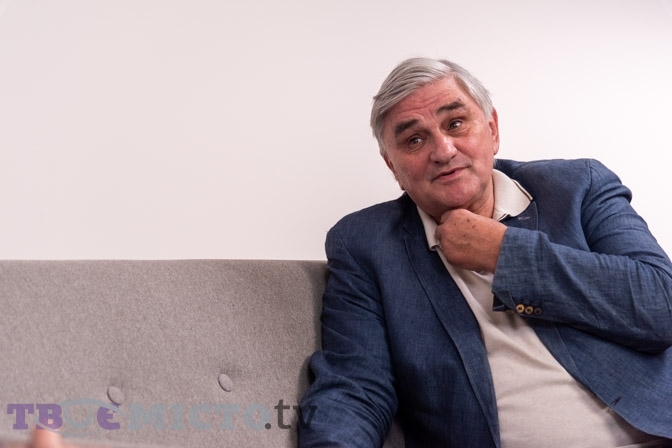
- How do you feel about such words when Russians say: «We are not guilty, we are also under occupation: we were occupied by Putin»?
- This is a topic that fills the mind. Many Russian psychotherapists manipulate precisely this, saying: «We are psychotherapists, we must work with people, help psychologically, we remain in Russia, we do not leave, but we cannot declare our position, because we will be put in prison, pursue and we will not be able to help. Therefore, sorry, but we are not against war. In our hearts, in private conversations, we may still understand what war is, but let’s not talk about it, because it’s dangerous.»
The opposite position is that you don’t want to, but you yourself are to blame. You chose him and supported him. He will still sooner or later suffocate all of you like cockroaches. You will not have the right to say what you think, even to your patients, you will be afraid that the old system of «snoopers» will arise again and some patient will simply sell you out.
The third position is when Western colleagues say that Russians should be sympathized because they are under deadly pressure. Our brains are bursting with such a catastrophic misunderstanding: you tell us about the danger for the Russians at a time when people are dying in our country...
Therefore, whether people who do not protest are guilty or not guilty is to some extent a rhetorical question. From the point of view of general society, general civilization – they are guilty.
- Where does this cowardice come from? How to change these people? By the way, in one of the publications you quoted a colleague who writes that Ukraine is in the puberty period. To what extent can we say that a nation is mature or not? Is this war taking us out of the «puberty period»? What does it mean?
- These are convenient metaphors to provoke a dialogue perhaps, but this is again a simplification.
For example, we had a professional discussion. One of my colleagues says that she studied at a school in Donetsk, and there was a Ukrainian teacher who was so conscientious about her subject, a sincere Ukrainian woman, who in that situation (and it was a long time ago), in the difficult conditions of Donetsk, was so cool that she convinced those children that Ukrainian is still a good language. Once, my colleague called this teacher to ask how she was doing. And she answered her in Russian, although she always spoke Ukrainian. She said: «We voted for Putin, we support him, Putin is right-wing, and you are all «Nazis». A colleague survived such a trauma, because that teacher instilled in her a love of language. And the question arose as to how this could be. A fierce dispute arose that such an impossibility was possible. Then I said: «She was Ukrainian, then there was no persecution for that, and now she lives in the L/DNR.» I turned the question around, saying: «Let’s do it this way – one of us will now go out on the street and start saying that Putin is a brilliant politician, our hero, who frees us from the «Nazis», the Bandera people. Tell me, how would you feel?»
- Dangerous.
- True? Maybe they wouldn’t imprison us, but they definitely hated us. And no one would talk to us, people would spit after us. Maybe, they wouldn’t let you go home, they would say «go get treatment.» And I ask: «Can you say that?» They think about it and say: «Probably not.» Then think about how that teacher who was pro-Ukrainian and has such a historical mark on herself, should behave? Either she will live in absolute isolation and be considered crazy, or she will be destroyed, or she must adopt a certain protective shell, become a psychological chameleon and accept it so much that the color of that chameleon is Russian. Otherwise, she will die.
- And to believe it yourself...
- How else? If you do not convince yourself of this, then she can betray herself, say something wrong. And this is the phenomenon of psychological mimicry. There is the so-called Stockholm syndrome: it is possible to believe that the supervisor who mocks me actually wants good for me, but cannot do it. So you see how difficult everything is.
If we manage to return Donbas, will it be possible to do something psychologically with it? Apparently, if you understand correctly, you can. The only problem is how to «correctly understand». If we come to Donbas and say: «We wanted to help you so much, but you still hate us,» then there are no options. And if you try to look at it more generally, maybe there are chances. However, it’s necessary to find the right point of view.
I would refrain from evaluating information, what is currently written, said, simplified categorical statements.
- You said that for Russians, this war is a search for their own identity. Can we not say the same about Ukrainians? Aren’t Ukrainians now inventing their identity, trying to finally understand where, for example, the line between Russian and Ukrainian is?
- No. I think that the issue of identity for Ukraine has been resolved in the so-called quantum way. That is, before the Revolution of Dignity it was definitely blurred, Maidan made the first «quantum leap», and now Ukraine has made the second one. There are many household confirmations of this. When people who have always spoken Russian say «we don’t want to speak Russian, we will speak Ukrainian» – what better confirmation of identity, it would seem?
We debated in professional groups whether Ukrainian identity is so closely linked to language. Many people will say «there are people who speak Russian, but feel they are sincere Ukrainians and have no doubts about it.» Therefore, we had a question whether language is an absolute marker of Ukrainianness.
We have already acquired an identity. We know for sure whether we are Ukrainians or not. Language is undoubtedly an important marker, but not the only one. There is an even more thorough sign of Ukrainianness – a specific attitude to civil freedom, which is perhaps quite unique for all Slavic peoples.
Neither the Belarusians, nor the Russians, nor, perhaps, even the Poles, have this attitude towards the freedom to choose a social strategy. In Poland, the social strategy is strongly influenced by the Catholic Church. Germany is a country of law. Why did Ukraine come together with the Anglo-Saxon world? Because this is a world of precedent, a world of freedom to choose a precedent: a case is created – and then we legitimize it, instead of the law that’s being written to be followed.
Corruption is the creation of parallel case law to the existing very strict codified law. We have laws that must be followed from A and to Z, this is more like the German system. But our society functions in parallel, and what we call corruption is the eternal creation of some precedents as a violation of this codified right. Of course, this is not good, it destroys the social structure terribly. But, on the other hand, this is a subtle indication that we are very used to the freedom of choosing a social structure.
A positive example is the creation of a so-called horizontal society in Ukraine. Nowadays, it probably has no analogues in the world. The horizontal structuring of Ukrainian society is simply colossal!
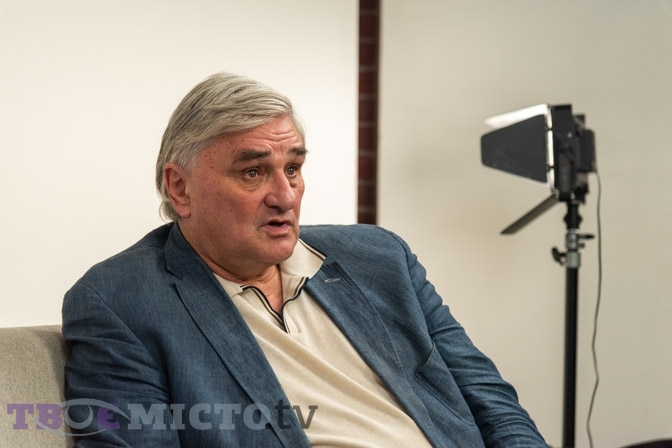
- I will say from my own experience: despite the attempts to create organizations that had more horizontal structures, an informal vertical is built there, which is much worse because it has no accountability. Effective functioning of such structures requires enormous trust within and a very high level of responsibility. Before the war, Ukrainians were record holders for mistrust of everyone and everything, record holders for irresponsible attitude. The war changes us, but I don’t know if it can change us so fundamentally that we will come out of it as «Danes»?
- There are two options: if the link is correct and if it’s false. Therefore, the question of whether we can become «Danes» depends on the link.
To put it another way: our starting position was that we were the record holders for splitting trust and distrust. That is, we were either very trusting or very distrustful. Then, this source link means we can go either way. A shift towards greater distrust is a shift towards a position of psychological struggle and flight, roughly speaking, war. Distrust equals war. Or we can move more towards trust, which we also had, but there was a split. Then, perhaps, it will not be so difficult for us to become «Danes».
If you take the reference that we were record holders for mistrust, then we will never become «Danes», because it is quite difficult to go from complete mistrust to complete trust.
- But mistrust is the result of a certain selection, that is, people survived thanks to mistrust – for example, regarding the state structures.
- We survived in Galicia, having a colossal distrust of the Soviet government, we simply laughed at it in our hearts, but we had high confidence in the fact that there is a real Ukrainianness. We gravitated towards that, we had acquaintances, we went carolling with them and were not afraid. We survived by mistrusting one system and very much trusting another. We had many people who agreed to cooperate with the NKVD, the KGB and became «snitches», but we still believed.
- Is it a problem with barriers? We could not say for 25-30 years that this is our state, our government and our people in Donetsk?
- I would say this: where the sense of freedom of choice of the social system ends, Ukraine ends there. Probably, Ukraine cannot go any further. If there are parts of the Donetsk and Luhansk regions, where the functioning system is already different, there is no internal freedom to choose a social system, it is always imposed (this is the main Russian problem – the government is always imposed, we have no chance to choose anything), that is where the Ukrainian identity ends.
- It seems to me that we can make a conclusion: to be Ukrainian is to be a democrat in blood.
- The core of Ukrainian identity is the freedom to choose social systems. Still, there is a constant search in the blood of Ukrainians. Cemented stability can be really difficult to expect. Since February 24 this year, we have entered the 21st century, until this date we were still at the tail end of the 20th century. We don’t know what it will be like next.
Perhaps social flexibility is in a good sense: in some period of social development, there should be maximum democracy, then it should be reduced wisely, social rigidity should be slightly increased, at some point, maybe even more rigid, and then democracy again. That is, the standard of social structure is not clearly fixed once and for all, but quite flexible, depending on historical circumstances, external pressures, and so on. For it to be a flexible social structure that can adapt to both internal and external influences. And in that sense, we can be leaders in the world. No one has yet predicted such a model. That is why the world is watching: what will happen to the Ukrainians?
Andrii Saichuk spoke
Text: Olha Katsan, translated by Vitalii Holich
Photo: Tvoe Misto/ Ivan Stanislavskyi
Full or partial republication of the text without the written consent of the editorial office is prohibited and is considered a copyright violation.
Follow us on Facebook and Instagram. Lviv Now is an English-language website for Lviv, Ukraine’s «tech-friendly cultural hub.» It is produced by Tvoe Misto («Your City») media-hub, which also hosts regular problem-solving public forums to benefit the city and its people.


